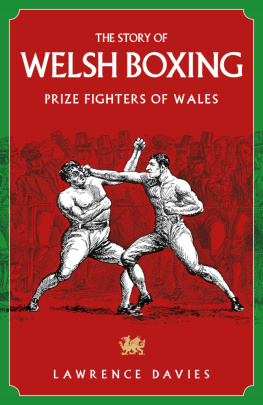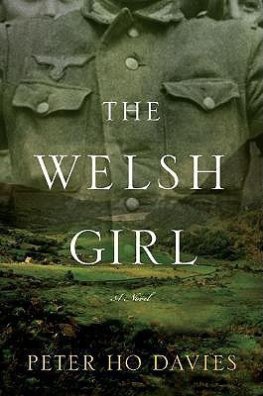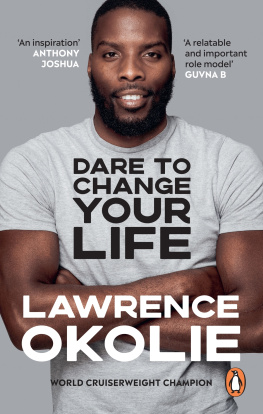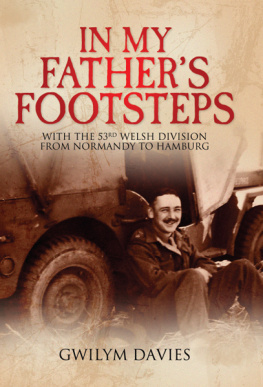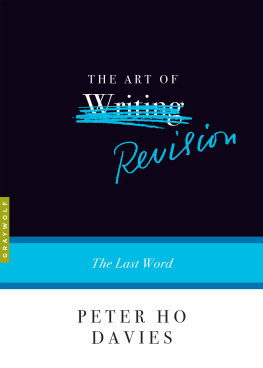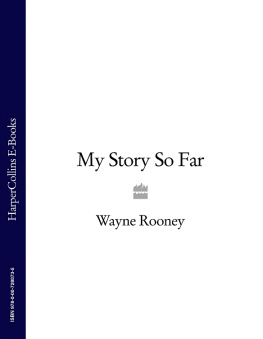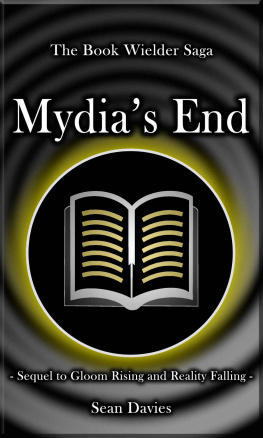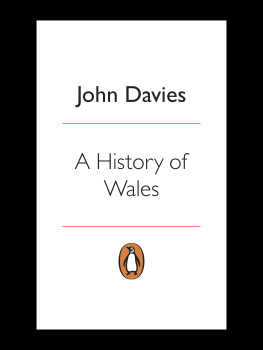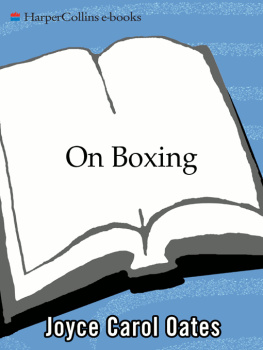Lawrence Davies - The Story of Welsh Boxing
Here you can read online Lawrence Davies - The Story of Welsh Boxing full text of the book (entire story) in english for free. Download pdf and epub, get meaning, cover and reviews about this ebook. year: 2019, publisher: Pitch Publishing, genre: Detective and thriller. Description of the work, (preface) as well as reviews are available. Best literature library LitArk.com created for fans of good reading and offers a wide selection of genres:
Romance novel
Science fiction
Adventure
Detective
Science
History
Home and family
Prose
Art
Politics
Computer
Non-fiction
Religion
Business
Children
Humor
Choose a favorite category and find really read worthwhile books. Enjoy immersion in the world of imagination, feel the emotions of the characters or learn something new for yourself, make an fascinating discovery.
- Book:The Story of Welsh Boxing
- Author:
- Publisher:Pitch Publishing
- Genre:
- Year:2019
- Rating:3 / 5
- Favourites:Add to favourites
- Your mark:
- 60
- 1
- 2
- 3
- 4
- 5
The Story of Welsh Boxing: summary, description and annotation
We offer to read an annotation, description, summary or preface (depends on what the author of the book "The Story of Welsh Boxing" wrote himself). If you haven't found the necessary information about the book — write in the comments, we will try to find it.
The Story of Welsh Boxing — read online for free the complete book (whole text) full work
Below is the text of the book, divided by pages. System saving the place of the last page read, allows you to conveniently read the book "The Story of Welsh Boxing" online for free, without having to search again every time where you left off. Put a bookmark, and you can go to the page where you finished reading at any time.
Font size:
Interval:
Bookmark:


First published by Pitch Publishing, 2019
Pitch Publishing
A2 Yeoman Gate
Yeoman Way
Durrington
BN13 3QZ
www.pitchpublishing.co.uk
Lawrence Davies, 2019
All rights reserved under International and Pan-American Copyright Conventions. By payment of the required fees, you have been granted the non-exclusive, non-transferable right to access and read the text of this e-book on-screen. No part of this text may be reproduced, transmitted, downloaded, decompiled, reverse-engineered, or stored in or introduced into any information storage and retrieval system, in any form or by any means, whether electronic or mechanical, now known or hereinafter invented, without the express written permission of the Publisher.
A CIP catalogue record is available for this book from the British Library
Print ISBN 978-1-78531-503-9
eBook ISBN 978-1-78531-572-5
--
Ebook Conversion by www.eBookPartnership.com
Dedication
This book is dedicated to the memory of my
late father, who never stopped fighting.
It is a privilege and an honour to be asked to write the foreword to such a well-researched book as Lawrence Davies has produced in the following pages, bringing to light the deeds of the early Welsh bare knuckle fighters, whose accomplishments have long been lost in the mists of time. What makes this book even more impressive is the fact that Wales, with its strong chapel background, was very reluctant to publish any news pertaining to bare knuckle prize fights, or information on the men who took part in them, unless, of course, a death occurred, or a pugilist got into trouble with the law, or was arrested for drunkenness, assault, etc.
The Cambrian was the only Welsh newspaper reluctantly giving any real sort of coverage to the early days of the bare knuckle art (and that was poor to say the least), but it by far outdid any other Welsh newspapers of the day in its coverage of the sport. This was a trend that was to recur as regards boxing in Wales, both with bare knuckle prize fighting and with the gloves (Marquess of Queensbury rules), right up to until the First World War of 19141918 (and even after that) with but few exceptions. But in the following pages, Lawrence Davies brings to life not only the more famous men of Welsh origin (and those who claimed to be) in the very early days of bare knuckle prize fighting and its heyday, such as Ned Turner and Paddington Jones, but also sheds light on men such as Jack Rasher, Edward Morgan (The Welch Boy), James Francis (The Terrible Welchman), Ellis Pannwr, Ned Davis of Wrexham, Ned and William Savage, William Charles, Bob Parry, John Thomas of Merthyr, plus many more.
In fact, this book could be said to excel the authors previous excellent book Mountain Fighters, Lost Tales of Welsh Boxing, which covered the later bare knuckle prize fighters of Wales. What really impressed me in this book was the inclusion of early prize fights, with the broadsword and quarterstaff etc, besides those with bare fists, as it gives the reader a glimpse of when bare knuckle prize fighting (with the fists) broke away from being bracketed with the broadsword and the quarterstaff, in the days of James Figg and Ned Sutton.
Yes, this is a truly well-researched book on a very difficult subject. I am sure that Lawrence will one day join the prize ring historian Tony Gee in the Bare Knuckle Boxing Hall of Fame. After producing such a remarkable book, and to have done so when there is so little to go on, is a feat in itself that deserves recognition, which I am sure it will receive.
Harold Alderman MBE
Boxing Historian, Aylesham, Kent
Over the course of many years researching Welsh boxing and prize fighting history, I must acknowledge the assistance of staff at a number of libraries within Wales, including those at Cardiff, Merthyr, Newport, Pontypridd, and Swansea amongst others, in addition to staff at the National Library of Wales, Aberystwyth. The author is also grateful for the help given by British Library staff over the course of long hours spent researching at the British Library newspaper archive at Colindale, London, which has sadly now closed. Thanks must also be given to April Schupmann of Austin, Texas, who digitally restored a large number of the rare images and portraiture taken from the authors personal collection that appear within this book, many for the first time. I am also grateful to the History of Parliament Trust for allowing me to reproduce the portrait of Sir Watkin Williams Wynn by Albin Roberts Burt included in this volume, the copyright of which is owned by the Trust.
I am grateful for the kindness of Harold Alderman MBE, the pioneering British boxing historian, of Aylesham, Kent, who wrote the Foreword for this book. Mr Aldermans historical work on boxing and the early glove period has paved the way for much that is understood about British boxing history today. Without the many years that Mr Alderman devoted to documenting the records of boxers of the past, it is unlikely that a large number of books on boxing history would have been written.
I am thankful for the support of the prolific award-winning author and boxing authority Graeme Kent, whose superbly written book A Welshman in The Bronx: Tommy Farr vs. Joe Louis (Llandysul: Gomer Press, 2009) was a treasured present from my late father. The author is indebted to Mr Kents kindness following the publication of my first book Mountain Fighters, Lost Tales of Welsh Boxing (2011), and his support of my second book on Welsh boxing, Jack Scarrotts Prize Fighters, Memoirs of a Welsh Boxing Booth Showman (2016). Without Mr Kents kind encouragement and his appreciation of my original research, it is unlikely that this book would have been written.
I must also credit the assistance of the prize ring historian Tony Gee, whose book Up To Scratch: Bareknuckle Fighting and Heroes of the Prize-ring (Harpenden: Queen Anne Press, 1994) remains one of the most keenly researched and accurate books on British prize fighting to date. Tony Gee is an expert on the prize ring, and has assisted the British Museum, the National Portrait Gallery and the Jewish Museum of London. Tony Gee has also written a number of articles on early pugilists and pugilism for the Oxford Dictionary of National Biography, which must be viewed as essential reading for the boxing historian seeking to understand this frequently inaccurately recorded period of early pugilism. The author wishes to thank Tony Gee for his assistance in documenting the early period of boxing history relating to some of the early prize fighters or weapons exponents. It must be stated that any errors found within are entirely the authors own. Finally, I must also thank Paul and Jane Camillin of Pitch Publishing for supporting this book.
Boxing has always played an important role in the sporting and social history of Wales, and was responsible for the rise of some of the most familiar Welsh sporting heroes in the early years of the 20th century. Men such as Freddie Welsh, Jim Driscoll and Jimmy Wilde are remembered as boxing legends that put Wales on the map as a country capable of producing fighters whose names are ranked alongside some of the greatest British fighters ever to have pulled on the gloves. For most sports historians, this is where the story of Welsh boxing begins, with the rise of nationally acknowledged champions such as Tom Thomas of Penygraig, who lifted the British middleweight crown in 1908. It seems logical to conclude, though, that for a champion to have travelled the path towards such fame, he must have beaten those challengers that are often forgotten. The greatest part of the early story of Welsh glove boxing has never been written. This being the case, it is perhaps understandable that the story of Welsh prize fighting, or bare knuckle boxing, has never been told.
Font size:
Interval:
Bookmark:
Similar books «The Story of Welsh Boxing»
Look at similar books to The Story of Welsh Boxing. We have selected literature similar in name and meaning in the hope of providing readers with more options to find new, interesting, not yet read works.
Discussion, reviews of the book The Story of Welsh Boxing and just readers' own opinions. Leave your comments, write what you think about the work, its meaning or the main characters. Specify what exactly you liked and what you didn't like, and why you think so.

